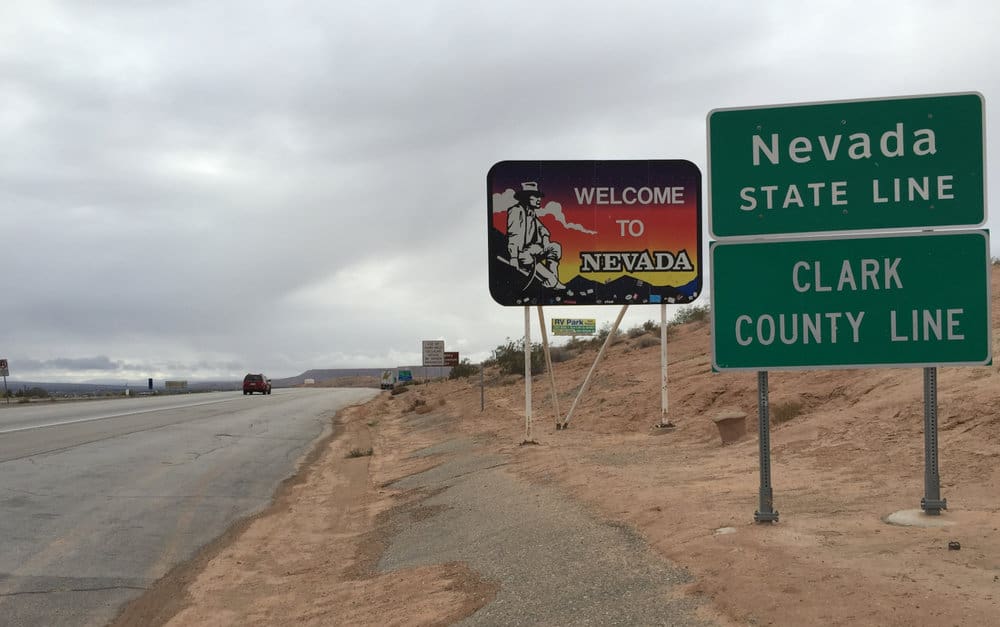
The company tells Nevada officials it would test the trucks in a platoon operation
Tesla is not only serious about its electric truck – expected to be previewed next month – but it’s also serious about replacing drivers. According to an internal email obtained by Reuters, Tesla has spoken with the Nevada Department of Motor Vehicles about testing autonomous electric trucks with no driver in the cab on Nevada roadways.
“To insure we are on the same page, our primary goal is the ability to operate our prototype test trucks in a continuous manner across the state line and within the States of Nevada and California in a platooning and/or Autonomous mode without having a person in the vehicle,” Tesla regulatory official Nasser Zamani wrote to Nevada DMV official April Sanborn, Reuters reported.
The exchange was part of a back and forth between Tesla and Nevada officials in May and June, and included an agenda for a June 16 meeting with Nevada DMV officials to discuss testing of two vehicles in the state, the news agency said.
Reuters also said that Tesla officials were meeting with California officials on Wednesday, a meeting that was confirmed by California state DMV spokeswoman Jessica Gonzalez.
Bloomberg reported that California officials are working with the California Highway Patrol to develop regulations covering the testing of autonomous vehicles over 10,000 pounds. There are currently no regulations allowing such testing.
Tesla’s Model S and Model X cars already offer driver-assistance features such as “Autopilot.” Speculation has been that the technology would be added to the semi.
Related:
Tesla’s bet on electric trucks
Is Tesla’s truck goal really a battery leasing program?
The Tesla Freight Network? It’s a guessing game
There has been a lot of speculation about just what Tesla will be unveiling come September. One drawback to a Class 8 electric truck is the size of the batteries necessary to power it for significant miles. Diesel-powered trucks routinely travel 500 or more miles between fill-ups, but most electric trucks today have ranges of under 100 miles. Even the Tesla Model X’s range is less than 300 miles.
The range question led two Morgan Stanley analysts to speculate that perhaps Tesla’s end game wasn’t the truck as much as a battery-leasing program.
“We believe [Tesla] could sell its autonomous, electric semis without batteries, which would then be separately leased to customers,” wrote analysts Adam Jonas and Ravi Shanker, according to a report on the research note by Electrek. “With a [approximately a] 250-300 mile range, these batteries could then be swapped out at battery swapping stations … built at Tesla Supercharging stations and truck stops around the country.”
Under a battery swap program, a Tesla electric truck would pull into a supercharging station or truck stop where a technician would swap out the battery for a fully charged one. This system keeps the range shorter, thereby reducing battery weight.
In the analysts’ view, a carrier that currently spends about 50 cents per mile for fuel (based on a cost of $3/gallon and a truck averaging 6 mpg driving 100,000 miles a year) could cut its fuel costs in half. The battery lease program might cost $25,000 per year for the carrier.
“If we consider the fact that the powertrain in Class 8 trucks today is about 50% of the $150,000 cost of a new tractor, the $75,000 savings in buying a truck without a powertrain would be worth almost $0.20/mile over the life of the truck,” the analysts note. “With this in mind, Tesla could charge as much as $0.45/mile and the truck carrier would still save 50% in fuel costs (but with equal purchase cost vs. today). With the 1 mile/kWh range as assumed earlier, to give a truck a 250-300 mile range would need a 250-300 kWh battery which we assume would cost Tesla approx. $25,000-30,000 each (@$100/kWh).”











